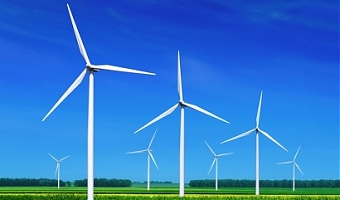Energy, Estonia, Financial Services, Legislation
International Internet Magazine. Baltic States news & analytics
Thursday, 18.04.2024, 02:08
Estonia's 2020 renewable energy subsidy budget short of EUR 9 mln
 Print version
Print version |
|---|
There is now a decision to be made if the necessary amount should be allocated out of next year's state budget, if prices should be raised, or both.
Last year, Estonian consumers paid approximately 90 million euros in renewable energy fees. That amount consists of 1.25 cents charged to consumers per each kilowatt-hour of renewable energy consumed.
For 2020, transmission system operator Elering raised the renewable energy fee to 1.36 cents per kWh.
Producers of renewable energy are paid support out of received fees, mostly on the basis of an arrangement which ended in 2016.
In general, the renewable energy charge established by Elering from the beginning of the year should cover payouts to producers during the whole year. Last year, when the renewable energy fee was set, the transmission grid operator predicted renewable energy production to continue on a par with 2019, while estimating a 1.14 percentage increase in total electricity consumption in Estonia.
In reality, however, the production of renewable energy increased and the usage of electricity in general decreased due to the coronavirus crisis.
One of the factors behind the growth of renewable energy production was the launch of a Utilitas biofuel powered cogeneration plant in the Tallinn district of Mustamae in last November. Since the project was started in 2013, it still fits under the arrangement that expired in 2016.
Elering spokesman Ain Koster told ERR they are missing an estimated 13 million euros this year. It is possible for the transmission network operator to change the size of the renewable energy fee also in the middle of the year. According to an assessment made by the company, the fee should be raised by close to 30 percent from August -- from 1.36 cents to 1.75 cents per kWh.
Timo Tatar, deputy secretary general for energy at the Ministry of Economic Affairs and Communications, told ERR that the four million euros was allocated to Elering in order for the state-owned company to not raise the price of electricity.
"If necessary, the government can reopen discussions in the autumn on whether we need to find even more resources or if Elering will adjust the renewable energy tariff in order for the inflow to cover payouts of the subsidy," he said.
The official explained that since renewable energy is largely dependent on wind, sun, the amount of water, and in the case of cogeneration plants -- the heating period, the process is difficult to predict and a shortfall in the budget is not a new occurrence. That can be taken into account also when regular changes are made to the tariffs at the end of 2020, he said.
"Another important factor is that soon, the first large producers of renewable energy will come out from under the scheme because the subsidization period of 12 years is nearing completion. Wind and solar farms in development do not need as big subsidies and are joining the scheme by means of reverse auction. Already now, we've seen need for support there more than two times smaller [than the current rates]," Tatar said.
It is still unclear if the Tootsi wind farm being developed by state-owned energy group Eesti Energia will fall under the scheme. Eesti Energia on June 19 submitted an application to Elering to assess the matter and to make a decision. By law, Elering has three months to announce their findings, but that period can be extended if additional information is necessary.
A total of 881 gigawatt-hours of subsidized renewable energy was produced in Estonia in the first five months of this year, compared with 759 GWh in 2019. According to forecasts, the amount of the subsidy to be paid out this year is nearing 100 million euros, compared with 91.4 million euros in 2019.
In 2010-2019, the subsidy paid by consumers to producers of renewable energy in Estonia totaled 691 million euros.
- 25.01.2021 Как банкиры 90-х делили «золотую милю» в Юрмале
- 30.12.2020 Hotels showing strong interest in providing self-isolation service
- 30.12.2020 EU to buy additional 100 mln doses of coronavirus vaccine
- 30.12.2020 ЕС закупит 100 млн. дополнительных доз вакцины Biontech и Pfizer
- 29.12.2020 В Латвии вводят комендантский час, ЧС продлена до 7 февраля
- 29.12.2020 В Rietumu и в этот раз создали особые праздничные открытки и календари 2021
- 29.12.2020 Latvia to impose curfew, state of emergency to be extended until February 7
- 29.12.2020 Linde Gas открывает завод в Кедайняйской СЭЗ
- 29.12.2020 Президент Литвы утвердил бюджет 2021 года
- 29.12.2020 В Риге можно изолироваться в трех гостиницах








 «The Baltic Course» Is Sold and Stays in Business!
«The Baltic Course» Is Sold and Stays in Business!

